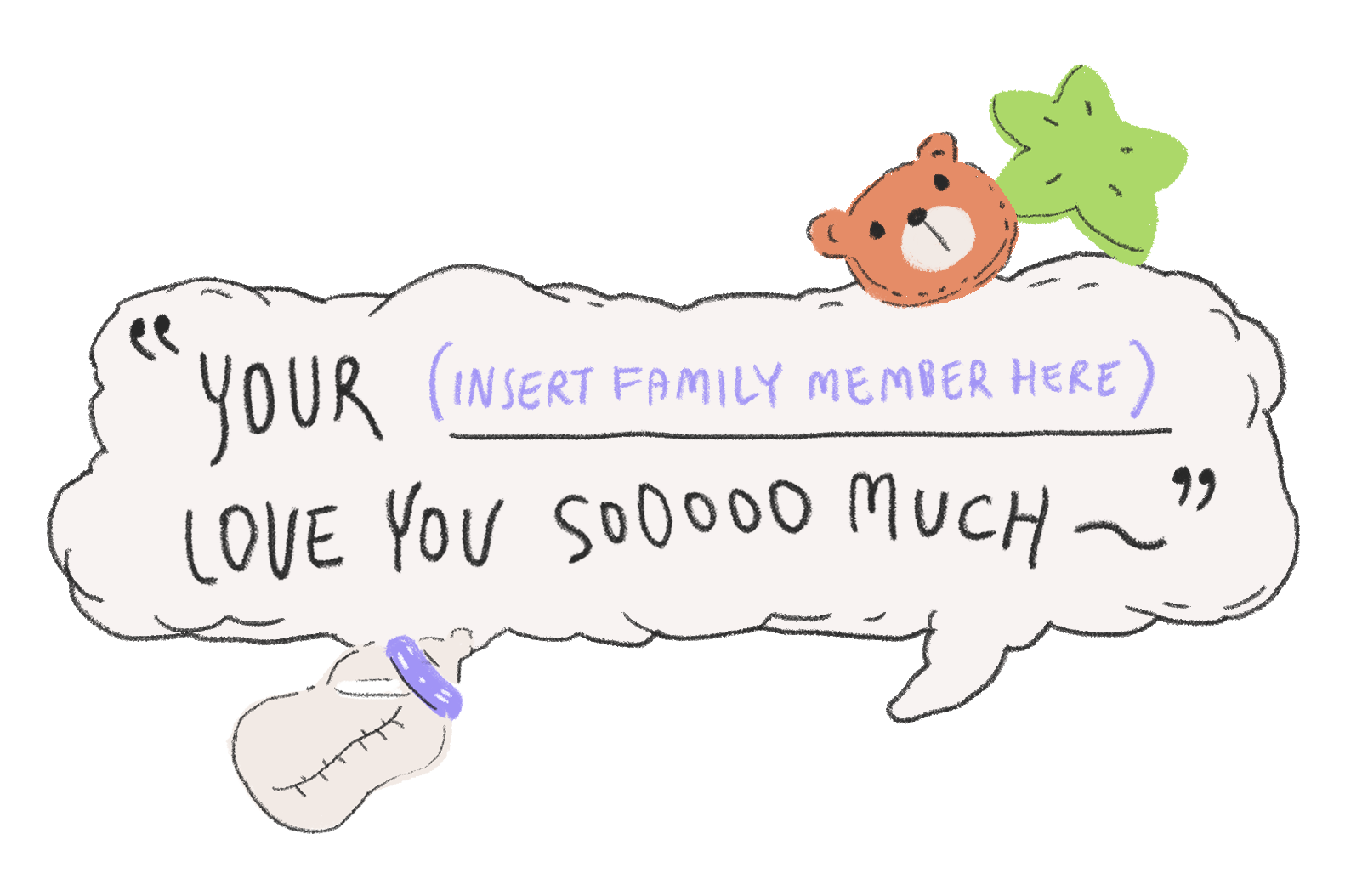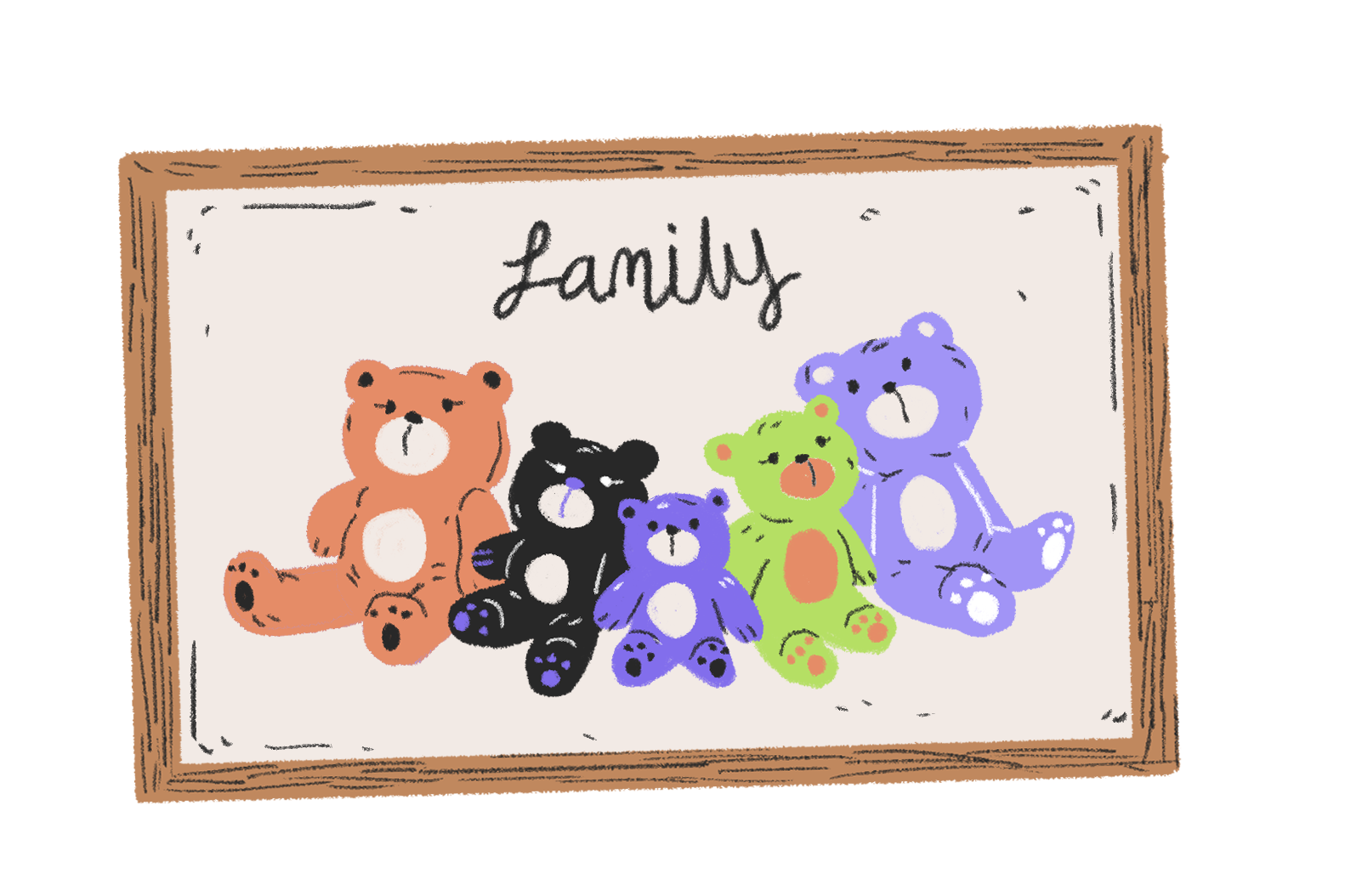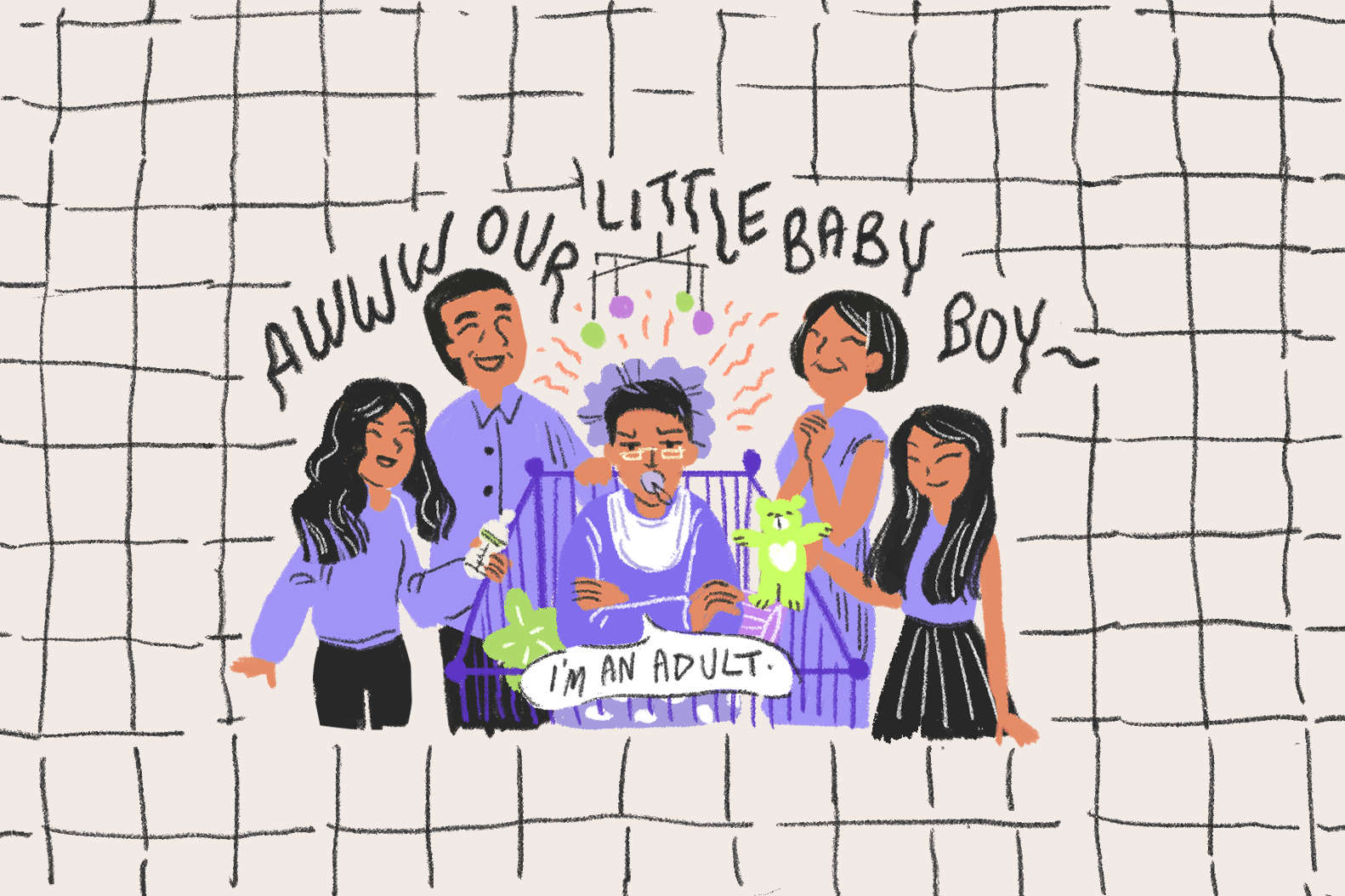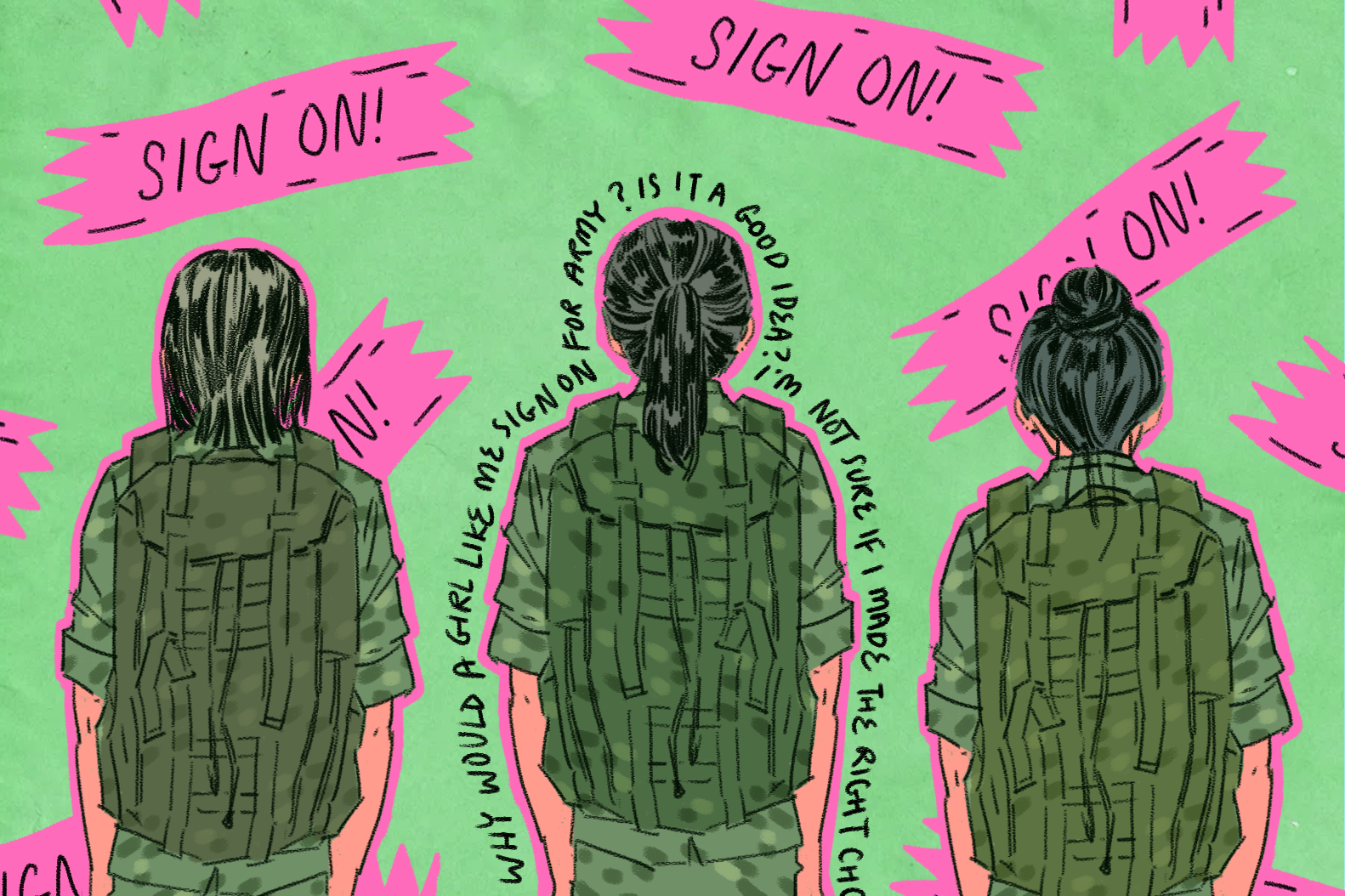Family is important to me. Family is important to my family.
People who know us know our family as close. I’ve never known whether they were right or wrong, probably because I’ve been the one most detached growing up.
I’m the youngest child, the baby of the family, the only son too. This was my “youngest child syndrome”.
I never really felt the need to unpack this baggage, till I started dating and began reflecting on what loving and being loved truly mean.
SPURNING LOVE
Every day, throughout my teenage years, my mum would ask, “How was your day?” to which I would flatly reply, “It was okay.”
I was mostly in my room with the door closed. They probably didn’t hear me talk much at home, or see me smile or cry. Or display any emotion, really. That was because I was scared to.
I was scared of opening up about my struggles and self-doubt in school, which happened often, because I didn’t want my family members to be there for me.
I was scared to receive their love. I didn’t want to take what I couldn’t give back.
See, growing up, I was constantly made aware of my position in the family as youngest (a word I viewed as synonymous with spoiled).
It wasn’t often, but there were times when my sisters would tell me about how loved I was by my parents – or how spoiled I was.
When I didn’t want to eat my veggies, they would tell me about how dad and mum would not allow them to eat anything else – no milk or ice cream – if they didn’t swallow their greens when they were my age.
“See, your jies love you so much,” my parents would say. “See, mum and dad love you so much,” my sisters would say.
And yes, it’s true: I appreciate all the times my sisters gave in to me and all the times my parents fetched me to school.
But it seemed that nobody recognised that I loved them too. Where was the “See, your brother loves you so much”, or the “See, your son loves you so much”?

Then there was that other phrase I hated, the one my uncles and aunties threw around all too freely — “baby of the family”.
Something about it made me feel inferior, as if I were a fragile, fussy flower who would wither without people periodically watering me with affection and adoration.
It made me feel like a trophy or a pet. Or some auxiliary member of the family, one who was only capable of being loved and spoiled.
And so I actually started to hate being loved. I didn’t want to be loved. Had I no love in me? Did I not love too? Was I incapable of showing love?
Love one another with brotherly affection. Outdo one another in showing honour. Romans 12:10 became a verse I took too seriously.
Love was a competition and if I couldn’t win, or at least be equal, then I wanted to stop receiving. I didn’t want to take what I couldn’t give back. So I started to subconsciously push them away.
EARNING LOVE
As all that was happening, I also tried my best to make the love invested in me “worthwhile”. I tried to earn my family’s love.
I decided that if I were going to be a trophy child, then I wanted to be the shiniest trophy. I pushed myself to study hard and get good grades. My achievements became inexorably intertwined with my self-worth.
My only goal in Junior College was to come out the other end with a perfect score.
Spoiler: I didn’t.
I did alright, but it wasn’t what I had expected at all. I remember crying in the school hall despite my most valiant efforts not to.
I lingered in school for a long while, as I was in no rush to head home and deliver bad news.
I remember my mum texting me and asking me how it went, to which I gave no reply.
She followed up with a heart emoji after realising I had probably left her on read. No text, just a red heart.
At that point, I was shattered. Feeling the crushing weight of disappointment, I walked as slow as I could on the way home. I was disappointed on my parents’ behalf.
I lied that I was fine with my results.
Again, I kept myself locked up in my room, but my parents kept knocking persistently.
When I opened the door, they didn’t say anything. They just hugged me.
In that silent embrace, I crumpled into a sad puddle of tears.
When I cried, they cried too. They knew I was disappointed, but wanted me to know that I could never disappoint them and that they loved me.
They didn’t know it then, but those were words that spoke to my deepest insecurities.
Though I failed to earn their love, though I didn’t deserve their love — they loved me anyway.
LEARNING ABOUT LOVE
I don’t know if that was the turning point in my relationship with my family, but it was certainly a pivotal one.
In the end, I had failed in my endeavour to earn the love given me. But that opened my eyes to the fact that love could be unconditional.
My family didn’t judge me or focus on my shortcomings. They accept me and love me for who I am.

With that understanding, I slowly started to open up to my family members.
It didn’t come naturally at first, but I forced myself. I knew it had to start with me telling them more about my day.
Slowly, my three-word answers got longer. Maybe I would tell them about something funny a friend said or about the thing stressing me out at work.
It sounds silly, but I found that it was in sharing little lame moments like that, and having someone genuinely interested in listening, that a real relationship was built.
I didn’t realise how little of my world I had given my family access to.
My mum was so proud of herself that she could finally remember my friends’ names and faces (because she had only begun hearing more about them).
That struck me: I didn’t realise how little of my world I had given my family access to.
Nowadays, I find myself more used to opening up to my family members: I am more comfortable expressing my feelings, showing affection, and being vulnerable.
I guess it’s really true that perfect love drives out fear (1 John 4:18).
I also came to see how important it is, getting to know my family members beyond their roles as mother, father or sister.
For example, nowadays, my dad and I go to work together. He’d ask what I’m busy with for the day and I’d ask him the same thing too.
I get to know him as his colleagues, clients and bosses know him.
I get to know him for who he is, and not just what I already think of him.
It’s the same with our relationship with God.
I had known about God all my life, but just like in my relationships with family members, my relationship with God was not one founded on love.
Because I had misunderstood love, I had misunderstood God.
And so, just as my conversations became warmer and more personal, I found prayer becoming more personal too.
Like it was with my family, I found myself becoming more comfortable with showing emotions, affection and vulnerability even in prayer.

It thus became easier to adore and behold God, to tell Him about my doubts and my fears.
To lay my burdens at His feet, knowing that I was fully known and fully loved. And I had a newfound joy in giving Him more and more access to my heart.
The Bible used to be very dry and hard book to get through too. But now, I am so thankful when I get to study the Bible or hear it being preached, because in doing so, I get to know more and more about God for who He really is — my loving Heavenly Father.
I thank God for the work of healing He has done in my family. Most of all, I thank God for the work of healing He has done in my walk with Him.
Walking with Jesus has never been so sweet and intimate as a child of God.
- How is your relationship with your family?
- What is one area in which God want to work or move in your family?
- Practically speaking, what would it take for you to build a closer relationship with your family?









